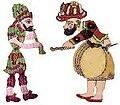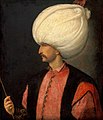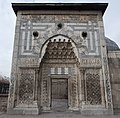
Back Portaal:Turkye Afrikaans بوابة:تركيا Arabic Portal:Türkiyə Azerbaijani پوْرتال:تورکیه AZB Портал:Турция Bulgarian প্রবেশদ্বার:তুরস্ক Bengali/Bangla Portal:Turska BS دەروازە:تورکیا CKB Portal:Türkei German Portal:Tırkiya DIQ
Merhaba! Türkiye portalına hoş geldiniz. Hi! Welcome to the Turkey portal.
 | |
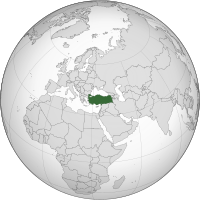
| |
Turkey, officially the Republic of Türkiye, is a country mainly located in Anatolia in West Asia, with a smaller part called East Thrace in Southeast Europe. It borders the Black Sea to the north; Georgia, Armenia, Azerbaijan, and Iran to the east; Iraq, Syria, and the Mediterranean Sea to the south; and the Aegean Sea, Greece, and Bulgaria to the west. Turkey is home to over 85 million people; most are ethnic Turks, while ethnic Kurds are the largest ethnic minority. Officially a secular state, Turkey has a Muslim-majority population. Ankara is Turkey's capital and second-largest city, while Istanbul is its largest city and economic and financial center. Other major cities include İzmir, Bursa, and Antalya.
Turkey was first inhabited by modern humans during the Late Paleolithic. Home to important Neolithic sites like Göbekli Tepe and some of the earliest farming areas, present-day Turkey was inhabited by various ancient peoples. The Hattians were assimilated by the Anatolian peoples, such as the Hittites. Classical Anatolia transitioned into cultural Hellenization following the conquests of Alexander the Great; Hellenization continued during the Roman and Byzantine eras. The Seljuk Turks began migrating into Anatolia in the 11th century, starting the Turkification process. The Seljuk Sultanate of Rum ruled Anatolia until the Mongol invasion in 1243, when it disintegrated into Turkish principalities. Beginning in 1299, the Ottomans united the principalities and expanded. Mehmed II conquered Constantinople (now known as Istanbul) in 1453. During the reigns of Selim I and Suleiman the Magnificent, the Ottoman Empire became a global power. From 1789 onwards, the empire saw a major transformation, reforms, and centralization while its territory declined.
In the 19th and early 20th centuries, persecution of Muslims during the Ottoman contraction and in the Russian Empire resulted in large-scale loss of life and mass migration into modern-day Turkey from the Balkans, Caucasus, and Crimea. Under the control of the Three Pashas, the Ottoman Empire entered World War I in 1914, during which the Ottoman government committed genocides against its Armenian, Greek, and Assyrian subjects. Following Ottoman defeat, the Turkish War of Independence resulted in the abolition of the sultanate and the signing of the Treaty of Lausanne. The Republic was proclaimed on 29 October 1923, modelled on the reforms initiated by the country's first president, Mustafa Kemal Atatürk. Turkey remained neutral during most of World War II, but was involved in the Korean War. Several military interventions interfered with the transition to a multi-party system.
Turkey is an upper-middle-income and emerging country; its economy is the world's 17th-largest by nominal and 12th-largest by PPP-adjusted GDP. It is a unitary presidential republic. Turkey is a founding member of the OECD, G20, and Organization of Turkic States. With a geopolitically significant location, Turkey is a regional power and an early member of NATO. An EU candidate, Turkey is part of the EU Customs Union, CoE, OIC, and TURKSOY.
Turkey has coastal plains, a high central plateau, and various mountain ranges; its climate is temperate with harsher conditions in the interior. Home to three biodiversity hotspots, Turkey is prone to frequent earthquakes and is highly vulnerable to climate change. Turkey has a universal healthcare system, growing access to education, and increasing levels of innovativeness. It is a leading TV content exporter. With 21 UNESCO World Heritage sites, 30 UNESCO intangible cultural heritage inscriptions, and a rich and diverse cuisine, Turkey is the fifth most visited country in the world. (Full article...)
Selected article -
Antioch on the Orontes (/ˈænti.ɒk/; Ancient Greek: Ἀντιόχεια ἡ ἐπὶ Ὀρόντου, romanized: Antiókheia hē epì Oróntou, pronounced [anti.ó.kʰeː.a]) was a Hellenistic Greek city founded by Seleucus I Nicator in 300 BC. One of the most important Greek cities of the Hellenistic period, it served as the capital of the Seleucid Empire and later as regional capital to both the Roman and Byzantine Empire. During the Crusades, Antioch served as the capital of the Principality of Antioch, one of four Crusader states that were founded in the Levant. Its inhabitants were known as Antiochenes. Any remains of the ancient city of Antioch are mostly buried beneath alluvial deposits from the Orontes River. The modern city of Antakya, in Hatay Province of Turkey, lies in its place.
Antioch was founded near the end of the fourth century BC by Seleucus I Nicator, one of Alexander the Great's generals, as one of the tetrapoleis of Seleucis of Syria. Seleucus encouraged Greeks from all over the Mediterranean to settle in the city. The city's location offered geographical, military, and economic benefits to its occupants; Antioch was heavily involved in the spice trade and lay within close reach of the Silk Road and the Royal Road. The city was the capital of the Seleucid Empire from 240 BC until 63 BC, when the Romans took control, making it the capital of the province of Syria and later of Coele Syria. During the late Hellenistic and Roman Principate periods, Antioch's population may have reached a peak of over 500,000 inhabitants (most generally estimate between 200,000 and 250,000), making the city the third largest in the Roman Empire after Rome and Alexandria and one of the most important cities in the eastern Mediterranean. From the early fourth century, Antioch was the seat of the Count of the Orient, head of the Diocese of the East. The Romans provided the city with walls that encompassed almost 450 hectares (1,100 acres), of which one quarter was mountainous, leaving 300 ha (750 acres) – about one-fifth the area of Rome within the Aurelian Walls. (Full article...)
General images
Did you know -
- ... that the Xhosa Wars veteran Stephen Bartlett Lakeman
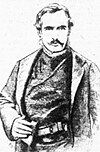
- ... that Turkish female aviator Nezihe Viranyalı was educated in civil aviation at the University of Tennessee following an invitation by the renowned American pilot Jacqueline Cochran? (January 2, 2009) Wikipedia:Recent additions 238
- ... that the Roman Catholic Church of St. Mary Draperis in Istanbul has been leveled by earthquake, forcibly demolished by the Ottoman Government, and destroyed three times by fire? (March 24, 2012)
- ... that unlike other cemeteries in Turkey that accommodate one religion only, Mersin Interfaith Cemetery includes graves of Muslims, Christians and Jews? (January 15, 2014)
- ... that Kieran Prendergast was the British Ambassador to Turkey before serving as United Nations Under-Secretary-General for Political Affairs? (June 21, 2008) Wikipedia:Recent additions 220
- ... that Levantine architect of French descent Raymond Charles Père (1854-1929), who designed the landmark of Izmir (pictured) in Turkey, was a native of Izmir? (February 18, 2009) Wikipedia:Recent additions 241
- ... that Iznik-tiled lunette panels believed to have been removed from Istanbul's Piyale Pasha Mosque in the 19th century are currently on display in various museums such as the Louvre and the V&A? (February 21, 2012)
Selected picture
Selected biography -
Ferit Orhan Pamuk (born 7 June 1952; Turkish pronunciation: [feˈɾit oɾˈhan paˈmuk]) is a Turkish novelist, screenwriter, academic, and recipient of the 2006 Nobel Prize in Literature. One of Turkey's most prominent novelists, he has sold over 13 million books in 63 languages, making him the country's best-selling writer.
Pamuk's novels include Silent House, The White Castle, The Black Book, The New Life, My Name Is Red and Snow. He is the Robert Yik-Fong Tam Professor in the Humanities at Columbia University, where he teaches writing and comparative literature. He was elected to the American Philosophical Society in 2018. (Full article...)
Selected video -
Selected quote -
| “ | Heroes who shed their blood and lost their lives! You are now lying in the soil of a friendly country. Therefore rest in peace. There is no difference between the Johnnies and Mehmets to us where they lie side by side here in this country of ours. You, the mothers, who sent their sons from far away countries wipe away your tears; your sons are now lying in our bosom and are in peace. After having lost their lives on this land they have become our sons as well. | ” |
Recognized content
Provinces
Related portals
Religions in Turkey
Neighbouring countries
Countries with related heritage
WikiProjects
Turkish wikipedia
 |
There is a Turkish version of Wikipedia, the free encyclopedia. |
Wikimedia
The following Wikimedia Foundation sister projects provide more on this subject:
-
Commons
Free media repository -
Wikibooks
Free textbooks and manuals -
Wikidata
Free knowledge base -
Wikinews
Free-content news -
Wikiquote
Collection of quotations -
Wikisource
Free-content library -
Wikiversity
Free learning tools -
Wikivoyage
Free travel guide -
Wiktionary
Dictionary and thesaurus





